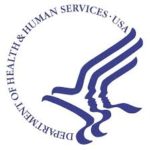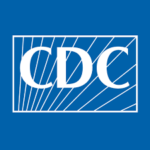The following is the latest health policy news from the federal government for January 5 – 11. Some of the language used below is taken directly from government documents.
 Centers for Medicare & Medicaid Services
Centers for Medicare & Medicaid Services
- CMS will establish 200 new Medicare-funded residency slots in FY 2025. Learn more about the additional slots here and find information about how to apply for those slots here. The deadline for applications is March 31.
- CMS released guidance for Medicare Part D plans that describes coverage and processing claims for COVID-19 therapeutics. Medicare Part D plans must cover commercially available oral antivirals for COVID-19 either as a formulary product or through the formulary exception process. CMS expects many Part D plans to take advantage of an agreement with Pfizer that will give their members access to Paxlovid for free through the plan without needing to enroll in Pfizer’s patient assistance program. Learn more from this CMS memo to all prescription drug plans, Medicare Advantage prescription drug plans, section 1876 cost plans, Medicare-Medicaid plans, and PACE organizations.
 Department of Health and Human Services
Department of Health and Human Services
- HHS’s Office for Civil Rights has published the final rule “Safeguarding the Rights of Conscience as Protected by Federal Statutes,” which clarifies the process for enforcing federal conscience laws and strengthens protections against conscience and religious discrimination. The final rule clarifies what federal conscience laws the Office for Civil Rights enforces, details how it will enforce federal conscience laws, and encourages covered entities, such as grantees and providers, to voluntarily post a notice of rights to ensure compliance and educate the public about conscience statutes and rights. Learn more from this HHS news release; an HHS fact sheet; and this announcement of the final rule, which takes effect on March 11.
- HHS has launched a new online hub, “Medicaid and CHIP Renewal and Transition Resources for Partners,” for partners to find critical Medicaid and Children’s Health Insurance Program (CHIP) renewal and transition resources. This outreach and engagement resource hub pulls together materials from across the federal government and is part of an effort to ensure that people with Medicaid or CHIP coverage are aware of states’ renewal processes and can easily renew their coverage or, if appropriate, get connected to other coverage. Learn more from this HHS news release and find the new hub here.
- HHS’s Agency for Healthcare Research and Quality (AHRQ) has published a report summarizing current research defining and measuring respectful maternity care and evaluating the effectiveness of respectful maternity care and implementation strategies to improve health outcomes, particularly for populations at risk for health disparities. Go here for links to the report.
- AHRQ has published “Social and Structural Determinants of Maternal Morbidity and Mortality: An Evidence Map,” a review of evidence of risk factors associated with maternal morbidity and mortality in the U.S. during the prenatal and postpartum periods. Find links to the report here.
- The Task Force on Maternal Mental Health, in its capacity as a subcommittee of the Substance Abuse and Mental Health Services Administration’s (SAMHSA) Advisory Committee for Women’s Services, is soliciting public comments on a set of questions concerning the context, policies, effectiveness, promising practices, and limitations and gaps related to the prevention and treatment of maternal mental health conditions and substance use disorders and its complications. The task force will develop a report that analyzes and evaluates the state of maternal mental health programs at the federal level; identifies best practices for maternal mental health and substance use disorders; and presents a national strategy for improving maternal mental health. Learn more from this HHS notice. Comments are due by January 31.
- HHS’s Office of Minority Health (OMH) and the Office of Behavioral Health, Disability, and Aging Policy within the Office of the Assistant Secretary for Planning and Evaluation have partnered on briefs focused on substance use treatment disparities among people of color and substance use treatment approaches. Their latest brief describes findings from an analysis of National Survey on Drug Use and Health data to assess whether and how rates of substance use and substance use disorders among adults differ by race and ethnicity. Learn more from the data brief “Substance Use and Substance Use Disorders by Race and Ethnicity, 2015-2019.”
- The Provider Relief Fund reporting portal opened January 1 and will remain open through March 31. Providers that received one or more Provider Relief Fund (general or targeted) and/or American Rescue Plan Rural payments exceeding $10,000 in the aggregate, from July 1, 2022 to December 31, 2022 must report on their use of funds during Reporting Period 6 to comply with Provider Relief Fund Reporting Requirements. Learn more from the Provider Relief Fund reporting web page.
- HHS’s Office of Information Security and its Health Sector Cybersecurity Coordinating Center have published their monthly cybersecurity vulnerability bulletin. Find it here.
HHS Newsletters
- CMS – MLN Connects – January 11
- AHRQ News Now – January 9
- HRSA eNews – January 4
- HRSA – December round-up
- CMMI Evaluation Digest – December 2023
 Centers for Disease Control and Prevention
Centers for Disease Control and Prevention
- The CDC has posted an update for clinicians on high blood lead levels in children who have consumed recalled cinnamon applesauce pouches and potential chromium exposure because of that consumption. Find that update here, along with links to other resources. The CDC posted its original health alert on the recalled applesauce pouches in November; find that alert here.
- The CDC has updated its clinical quick reference for mpox and its clinical guidance for mpox.
National Institutes of Health
Access to residential addiction treatment centers caring for U.S. adolescents under 18 years old in the U.S. is limited and costly, according to a new study supported by the NIH. Researchers found that only 54 percent of the residential addiction treatment facilities they contacted had a bed immediately available, and for those that had a waiting list, the average estimated time before a bed opened was 28 days. In addition, the average daily cost per day of treatment was $878, with 48 percent of the facilities that provided information requiring partial or full payment upfront. On average, the quoted cost of a month’s stay at a residential addiction treatment facility was more than $26,000. In addition, only seven states had a facility that accepted Medicaid, had a bed open the same day, and offered buprenorphine. Learn more from this NIH news release and Health Affairs study “Adolescent Residential Addiction Treatment in the U.S.: Uneven Access, Waitlists, and High Costs.”
MedPAC and MACPAC
Both the Medicare Payment Advisory Commission (MedPAC) the Medicaid and CHIP Payment and Access Commission (MACPAC) have submitted formal comments to CMS in response to CMS’s proposed rule on policy and technical changes to the Medicare Advantage program and Medicare prescription drug benefit program for 2025. Find MedPAC’s letter here and MACPAC’s comment letter here.
Federal Communications Commission
The FCC has published a regulation on promoting telehealth in rural America that seeks to assist rural health care providers with the costs of broadband and other eligible services. By offering discounted rates for these services, the Rural Health Care Program enables health care providers to better treat patients in rural areas that often have fewer medical resources and higher service rates than in urban areas. Learn more about the program, including the benefits it offers and eligibility to participate, from this regulatory announcement. Most of the rule takes effect on February 12.
 Stakeholder Events
Stakeholder Events
CMS – Hospital Price Transparency Webinar – January 17
To help hospitals prepare for meeting new requirements for price transparency, CMS will hold a webinar on Wednesday, January 17 at 2:00 (eastern) to review the new requirements; to present examples of how to encode machine-readable file standard charge information in the template layout CMS will require hospitals to use; and to demonstrate its “GitHub” repository. Go here to register to participate.
CMS – Medicaid and CHIP Renewals – January 24
CMS will hold a webinar on “Medicaid and CHIP Renewals: What to Know and How to Prepare” on Wednesday, January 24 at noon (eastern). The purpose of the webinar is to provide stakeholders with information to prepare for Medicaid and CHIP renewals. Go here to register to participate.
MACPAC – January 25-26
The Medicaid and CHIP Payment and Access Commission will hold its next public meeting on Thursday, January 25 and Friday, January 26. Go here to register to participate in the virtual meeting.
CMS – Health Equity Conference – May 29-30
CMS will hold its second annual CMS Health Equity Conference on Wednesday, May 29 and Thursday, May 30. The free, hybrid conference will be held in person in Bethesda, Maryland and available online for virtual participation and involve health equity leaders from federal and local agencies, health provider organizations, academia, community-based organizations, and others. Conference participants will hear from CMS leadership on recent developments and updates to CMS programs; explore the latest health equity research; discuss promising practices and creative solutions; and collaborate on community engagement strategies. CMS is now accepting proposals for breakout session speakers and poster presenters. Learn more from the conference web page.
Stakeholder Events: Health Data, Technology, and Interoperability: Certification Program Updates, Algorithm Transparency, and Information Sharing (HTI-1) Final Rule
HHS’s Office of the National Coordinator for Health Information Technology (ONC) will host the following information sessions to explain the Health Data, Technology, and Interoperability: Certification Program Updates, Algorithm Transparency, and Information Sharing (HT1-1) final rule.
HTI-1 Final Rule Decision Support Interventions Information Session
Wednesday, January 17, 2024 at 1:00 pm (eastern) register here
HTI-1 Final Rule Information Blocking Information Session
Thursday, January 25, 2024 at 1:00 pm (eastern) – register here
HTI-1 Final Rule Overview with Question & Answer Information Session #2
Thursday, February 1, 2024 at 1:00 pm (eastern) – register here

 Centers for Medicare & Medicaid Services
Centers for Medicare & Medicaid Services Stakeholder Events
Stakeholder Events